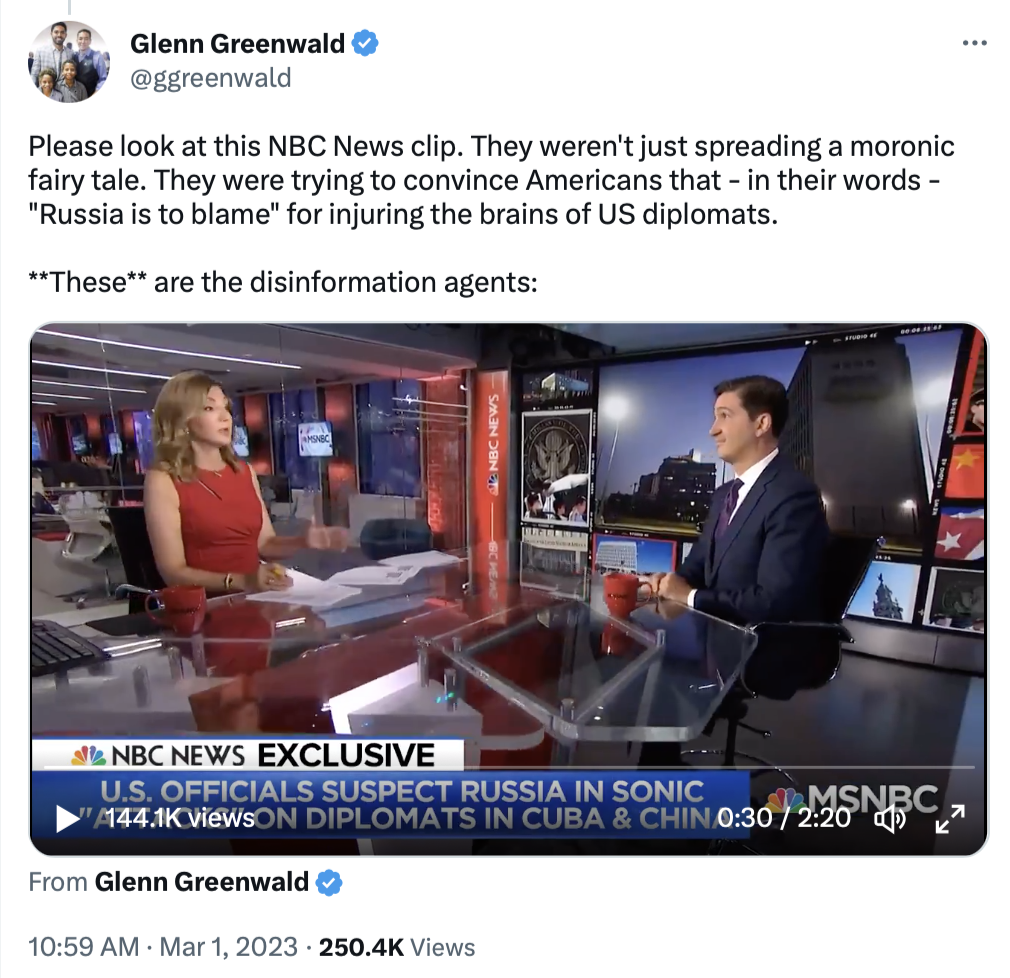There is now overwhelming evidence that Anthony Fauci
A) was responsible for funding the experiments that created COVID
B) misled the public on the lab origin of COVID,
C) funded and edited a paper to mislead the public, and
D) engaged in corruption to require doctors and researchers to cover up for his own responsibility.
All of this should be the biggest story in every news outlet, but you will be informed about these disclosures, including Fauci's intimate involvement in creating this shamefully corrupt research paper, in NYT, WaPo, NPR, MSNBC or CNN. None of these are respectable news organizations. They do the same thing on the left as FOX does on the right. At least FOX admits that it was created for the purpose of getting its favorite politicians elected.
Excerpt from Yesterday's NYP article on Fauci's corrupt article:
Former White House chief medical adviser Dr. Anthony Fauci repeatedly dismissed concerns that the COVID-19 pandemic began with a lab leak in Wuhan, China — after he commissioned a paper to “disprove” the theory, according to newly released emails.
The House Select Subcommittee on the Coronavirus Pandemic released evidence Sunday that Fauci ordered, helped to edit, and gave final approval to a paper titled “The Proximal Origin of SARS-CoV-2,” which was published on Feb. 17, 2020. Exactly two months later, Fauci used that same publication to wave away concerns that the virus might have come from a Chinese facility.
For those who are still skeptical, follow the links in this overview article,"Newly-released Emails Show Fauci Commissioned the 2020 Study Used to Disprove the Lab Leak Theory." Here is an excerpt:
But ironically, if he’d been forthright about what he knew and when he knew it and informed government officials that the NIH had been using American taxpayer dollars to fund the kind of exceedingly sketchy research at the WIV from which covid likely originated, it’s unlikely Fauci would’ve faced any real consequences (not that he will now). After all, even though he was the one to fund the research, and even though he effectively ignored the U.S. moratorium on gain-of-function experimentation by outsourcing it to arguably the shadiest and least trustworthy country in the world, and even though the Department of State had specifically warned that safety standards in specifically that lab were woefully insufficient and that such negligence could very well prove disastrous in the not too distant future,3 it’s not as if Fauci or any other American for that matter allowed the virus to escape. It was China. And I imagine that Fauci wouldn’t have found much difficulty in getting people to place blame on one of our staunchest adversaries.
But it’s clear that Fauci is obsessed with his legacy, which he was trying to protect. Now, however, not only is that legacy tarnished, but he’s been repeatedly exposed as a liar.
Here again it must be highlighted how the mainstream media failed to give any coverage at all to the fact that the individual in charge of our pandemic response just so happened to have very troubling ties to the lab from which covid could very well have originated. Instead, they lionized him. When it became clear that Fauci wasn’t especially fond of Trump, Democrats and their media handmaidens rallied to portray him as a symbol of authority, an expert whose public standing was integral to our continued health and safety, a valiant foil to the bad orange man and his mean tweets and his lack of respect for The Science™.
One more excerpt, this one from "Collapse of the COVID Truth Regime":
While mainstream media outlets pushed a propagandistic narrative to build popular acceptance of radical and unprecedented measures, government agencies pressured social media companies like Twitter and Facebook to suppress analysis from skeptics. From the lab leak hypothesis, to natural immunity, to mask mandates, much of this analysis has turned out to be entirely legitimate. By skewing the scientific debate, social media “content moderators” allowed state-sponsored misinformation to proliferate unchecked. Three years later, the alarming trend of non-COVID excess mortality in Western countries is an indictment of the COVID response and the censorship that accompanied it. If the job of public health officials was to minimize harm, ongoing excess mortality after the peak of COVID is evidence of failure.
As this failure becomes undeniable, we are witnessing the collapse of much of the censorship campaign that helped shield authorities from criticism. Under Elon Musk, Twitter ended its COVID “misinformation” policy and reinstated many banned accounts. The “Twitter files” and the Missouri v. Biden lawsuit have revealed that the White House, the CDC, and even Pfizer were all involved in a coordinated, systematic silencing of dissent around COVID policies and vaccines.

